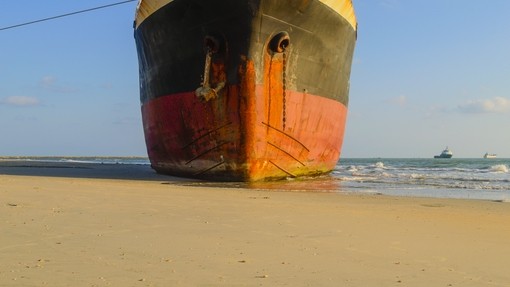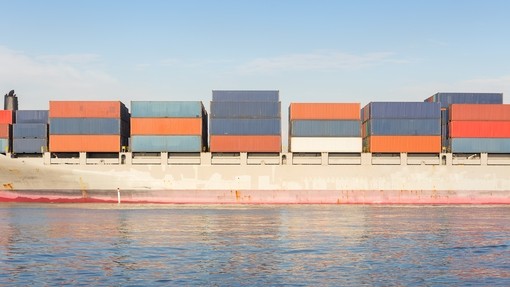Mitsui & Co Ltd and others (Respondents) -v- Beteiligungsgesellschaft LPG Tankerflotte MBH & Co KG and another (Appellants) [2017] UKSC 68

Details
This case is a rare and significant decision from the Supreme Court on general average and the 1974 York-Antwerp Rules. This appeal settles the meaning of ‘extra expense’ under Rule F, and whether it applies to the daily vessel-operating expenses of ship owners, incurred while they were negotiating a ransom demand with pirates. The decision is in contrast with the current practice of most adjusters to disallow such expenses.
Factual background
The vessel, m/v “LONGCHAMP”, was seized by Somali pirates on 29 January 2009 whilst she was transiting the Gulf of Aden en route from Norway to Vietnam, and ordered to alter course to Eyl, Somalia. She was carrying cargo pursuant to a bill of lading issued by the appellant owners to the respondents (‘cargo’) which was subject to the 1974 York-Antwerp Rules. The pirates’ negotiator made a ransom demand of US$6 million on 30 January, by which time owners had assembled a crisis management and negotiating team who had agreed a target ransom settlement figure of US $1.5 million.
Owners eventually paid a ransom of US$1.85 million, agreed more than seven weeks later, on 22 March 2009.
During negotiations, the vessel ran up expenses for crew wages (including a high risk area bonus), crew maintenance and bunkers consumed, totalling US $160,000 (‘the negotiation period expenses’). The adjuster considered these ‘extra’ expenses allowable under Rule F [NB: for full text of relevant rules, please refer to the end of the article] on the basis that the expenses allowed a saving, in the common interest, in place of ‘another expense’ of US $4.15 million, which would otherwise have been recoverable as general average under Rule A.
The total value of both cargo and vessel was around US $4.7 million, of which cargo was liable under general average for 14.44%. Cargo obtained a report from the advisory committee of the Association of Average Adjusters which concluded by a majority of four to one that the negotiation period expenses did not fall within Rule F. They then issued a challenge to the adjuster’s conclusion and sought repayment of their share of the negotiation period expenses, arguing two main points before the High Court and the Court of Appeal:
- It would not have been reasonable to accept the pirates’ initial demand of US $6 million. Therefore, if paying the demand (or making the US$4.15 million saving) was not reasonably incurred under Rule A, it was also not ‘another expense …allowable as general average’ under Rule F. Both courts below disagreed with this argument and found that it would have been reasonable for owners to pay the initial demand of US $6 million.
- Negotiating a reduced ransom of US$1.85 million (and the saving of US $4.15 million) was not ‘an alternative course of action’ to the payment of the original sum demanded – merely a variant. The Court of Appeal agreed with cargo on this point.
Further argument was made that, in any event, the negotiation period expenses were irrecoverable by virtue of Rule C, which excluded any indirect liabilities and losses sustained through delay.
Owners appealed to the Supreme Court.
Legal issues
Lord Neuberger gave the leading judgment with which Lord Sumption, Lord Clarke and Lord Hodge agreed. Lord Mance dissented.
Reversing the Court of Appeal decision, the Supreme Court found that the language of Rule F did not require that the expenses were incurred following an alternative course and that it was not necessary to consider whether the original demand was reasonable in accordance with Rule A.
Before the courts all the evidence suggested that no shipowner had accepted an initial demand from Somali pirates, and that demands were generally pitched on the basis that they would be substantially reduced. On the other hand, their Lordships were mindful of the perils of the wisdom of hindsight and noted that there was a wounded sailor on the vessel and that the cargo was perishable (although it actually survived the long negotiation period).
The court found that it was not necessary for owners to establish that it would have been reasonable for them to accept and pay the initial demand, in order to justify the negotiation period expenses being allowable under Rule F. To do so would lead to the odd result – known as the ‘Hudson conundrum’ – that an owner could recover under Rule F if he avoided paying a lower (reasonable) demand but could not recover if he avoided paying a higher (and therefore unreasonable) demand. In other words, the greater the mitigation, and likely benefits of mitigation, the less he would be likely to recover.
A more rational outcome was also supported by the wording of Rule F, which referred only to the nature of an allowable expense, not to the quantum, and aligned with the exclusions in Rule C which was also purely concerned with the type of expense, not the quantum. Quantum was dealt with only in the second part of Rule F, whereby the extra expense was capped ‘…only up to the amount of the general average expense avoided.’ Their Lordships found that the courts below had imposed an unnecessary and additional fetter on the allowability of ‘extra expense’ in their interpretation of the rule. Whenever an expense was incurred to avoid a sum of a type which would be allowable, that expense would be allowable, but only to the extent by which it did not exceed the sum avoided.
It followed that the negotiation period expenses were incurred to avoid paying the US $6 million ransom (or more accurately, a ransom of US $4.15 million more than actually paid) and the ransom was an allowable expense in principle. The same conclusion could be reached on the basis that the second part of Rule F applied to cap an expense that was unreasonably high, and the greater sum included the less.
As to whether negotiation was an alternative course of action, the court disagreed with cargo, and the two leading books on general average, that this meant ‘in substitution for’ or ‘a choice between two [or more] different courses of action’. The negotiation period expenses represented an alternative course of action from paying the US $4.15 million, which involved incurring vessel-operating expenses, whereas paying the US $4.15 million involved paying a ransom.
Furthermore, the question as to whether an expense had been incurred ‘…in place of another expense…’ had to be assessed objectively. Clearly negotiations would be needed if the ransom was to be reduced, such negotiations took time and that would result in additional expenses being incurred. It followed that these expenses were incurred ‘in place of’ the US $4.15 million saved and the appeal was allowed.
Lord Mance dissented and dismissed the appeal, albeit for different reasons to the Court of Appeal reasoning. His Lordship agreed with the courts below, that the expense avoided had to be one which would have been reasonably incurred, and paying a demand of US$6 million which exhausted, or very nearly exhausted, all interests involved, would not have been reasonable. Additionally, owners had never contemplated such a ‘remarkable capitulation’ as was needed to pay the initial demand, and if they had, it would have taken them, and other ship owners, into uncharted territory. It was Lord Mance’s view that whilst it was established that Rule F was in principle capable of applying to negotiation period expenses, this had not been established on this case.
Comment
This is the first time an English court had to interpret the meaning of Rule F of the 1974 rules and the court agreed that given that the rules represented an international arrangement, it was particularly inappropriate to adopt an approach to their interpretation which involved reading in any words or qualification. In the event, their Lordships decided that such gloss was unnecessary because Rule F applied in this case as a matter of ordinary language. General average claims rarely reach the courts, so adjusters have adopted a variety of practices or rules of thumb to supplement the rules. The court noted that experience showed that in many areas of practical and professional endeavour generally accepted points of principle and practice, when tested in court, sometimes turned out to be unsustainable. There is now a clear finding that indirect losses, and even losses caused by a delay, can be recovered under Rule F, as long as the expenses are directly attributable to mitigating or reducing the overall general average claim.
Wording of relevant York-Antwerp Rules
Rule A:
‘There is a general average act when, and only when, any extraordinary sacrifice or expenditure is intentionally and reasonably made or incurred for the common safety for the purpose of preserving from peril the property involved in a common maritime adventure.’
Rule C:
‘Only such losses, damages or expenses which are the direct consequence of the general average act shall be allowed as general average.
Loss or damage sustained by the ship or cargo through delay, whether on the voyage or subsequently, such as demurrage, and any indirect loss whatsoever, such as loss of market, shall not be admitted as general average.’
Rule F:
‘Any extra expense incurred in place of another expense which would have been allowable as general average shall be deemed to be general average and so allowed without regard to the saving, if any, to other interests, but only up to the amount of the general average expense avoided.’
This article originally appeared in the November 2017 edition of shipping case digest. Other articles include:
Squibb Group Limited -v- Pole 2 Pole Scaffolding Limited [2017] EWHC 2394 (TCC)






